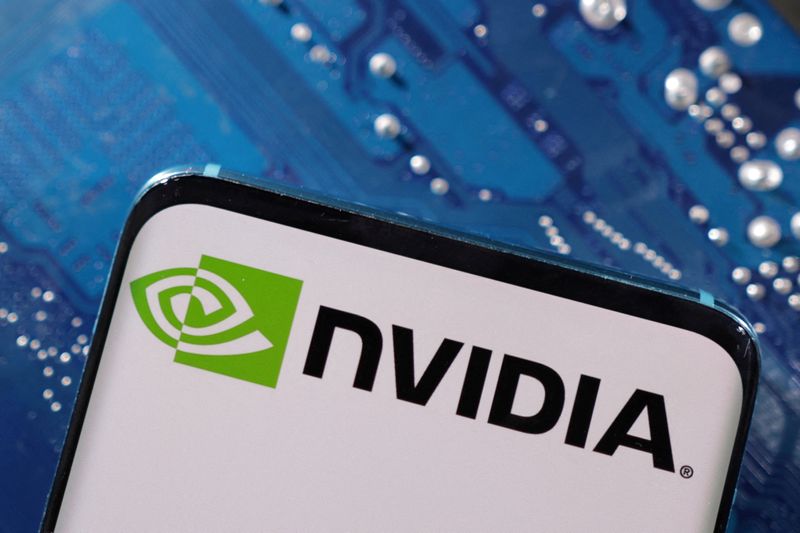By Noel Randewich
(Reuters) - Nvidia's stock jumped to its highest in a year on Tuesday, extending a recent rebound after HSBC flipped its recommendation on the graphics chipmaker to "buy" from "reduce," pointing to opportunities in artificial intelligence.
HSBC Head of Technology Research Frank Lee had been the only one among 48 analysts covering Nvdia to have a negative rating on the chipmaker, according to Refinitiv data.
Nvidia's 91% rally so far in 2023 makes it the S&P 500's top-performing stock during that time. The Silicon Valley company's stock has rebounded about 150% from its low in October.
(Graphic: Nvidia rebounds on AI optimism, https://fingfx.thomsonreuters.com/gfx/mkt/znvnbjanovl/Pasted%20image%201681834745454.png)
Investors have been betting that Nvidia will become a dominant chip supplier in an emerging wave of artificial intelligence computing, even as the global semiconductor industry weathers a downturn in sales due to worries about the economy.
"We’re throwing in the towel on our previous Reduce and double upgrade Nvidia to Buy. We were too focused on the slowdown in datacentres, but what really surprised us was its pricing power on AI chips," Lee wrote in a client note.
Nvidia rose to $281.10 on Tuesday, its highest level since March 2022. It was last at $279.23, a gain of 3.4% for the session.
Lee lifted his price target to $355 from $175. That compares to a median price target of $298.50.
Nearly $11 billion worth of Nvidia stock had been exchanged as of midday on Tuesday, making it Wall Street's most traded stock for the session, according to Refinitiv.
Nvidia on Feb. 22 forecast first-quarter revenue above Wall Street estimates, with CEO Jensen Huang telling analysts that use of its chips to power artificial intelligence services like chatbots had "gone through the roof."

With a market capitalization of $687 billion, Nvidia has become the fifth most valuable company on Wall Street, trailing only Apple (NASDAQ:AAPL), Microsoft (NASDAQ:MSFT), Alphabet (NASDAQ:GOOGL) and Amazon (NASDAQ:AMZN), and beating Tesla (NASDAQ:TSLA) by about $100 billion.
Nvidia's shares remain down about 17% from their record high close in November 2021.